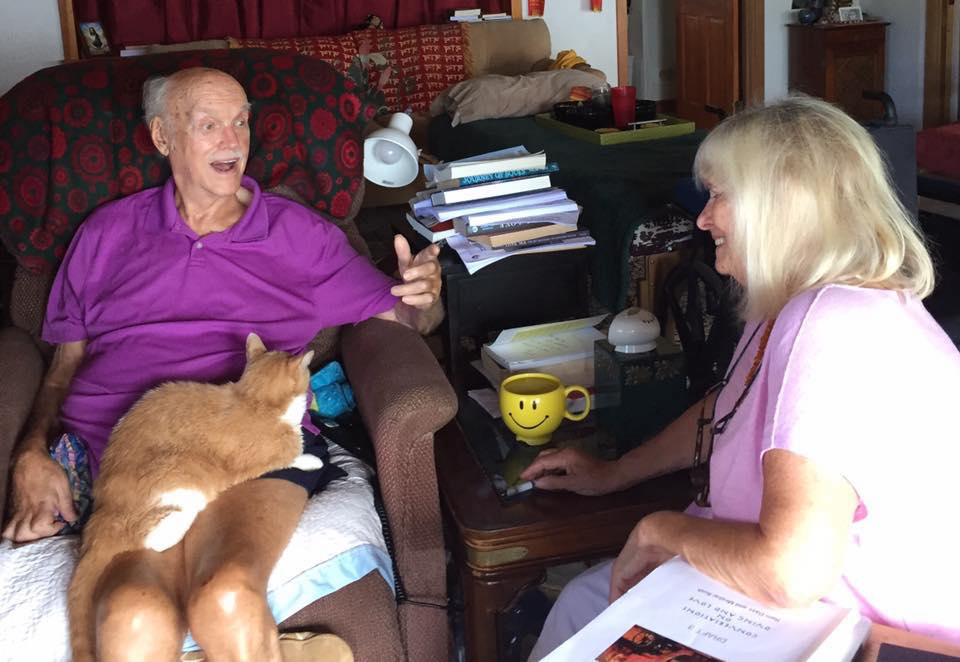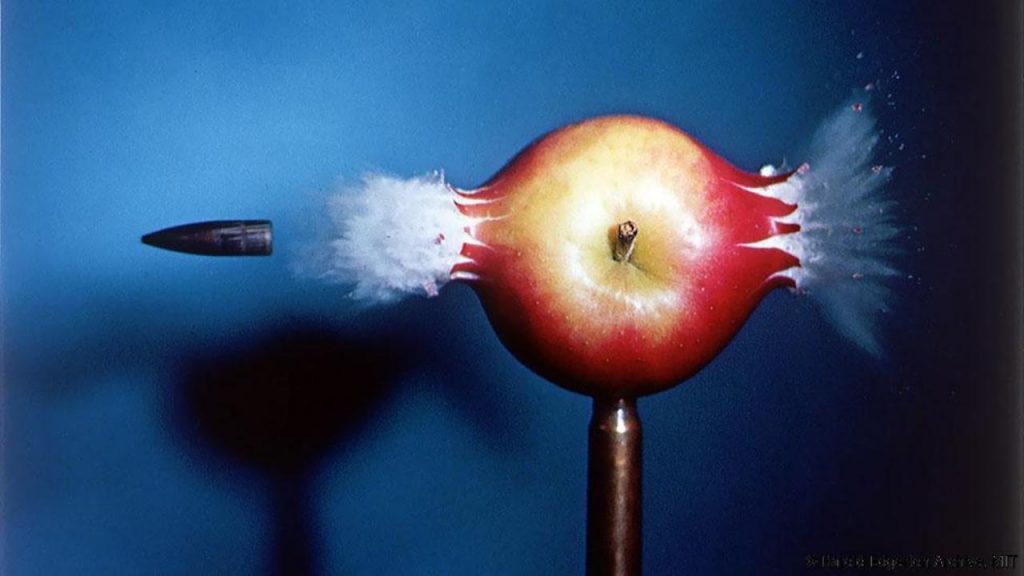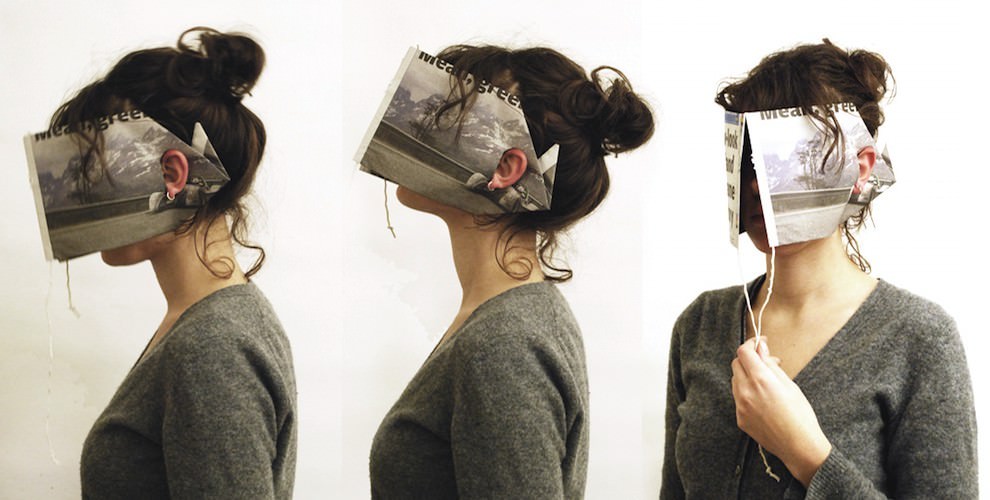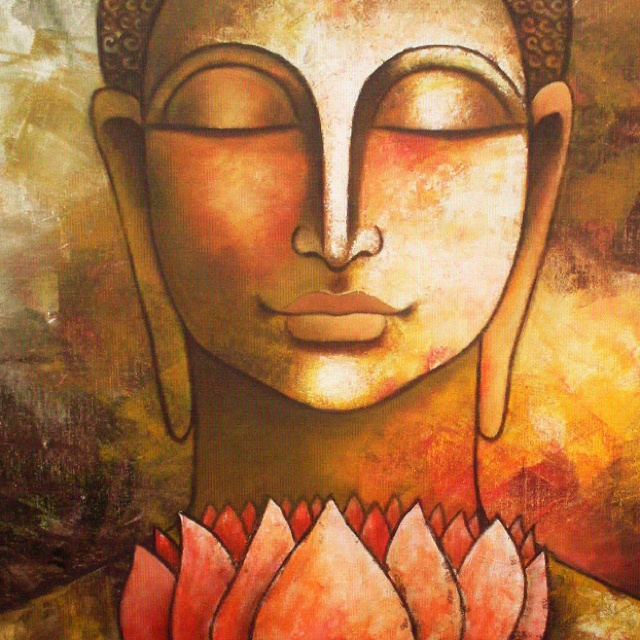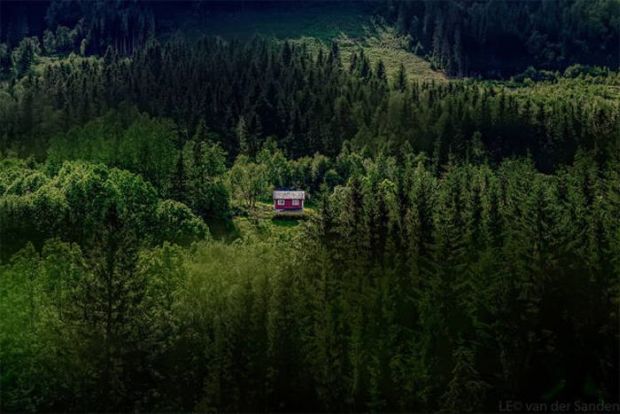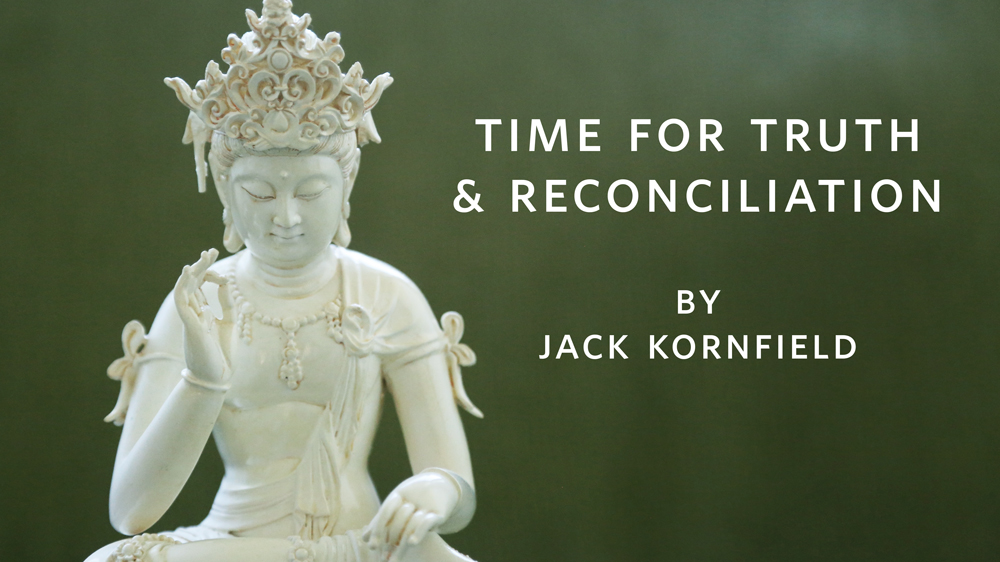If I’m Going to Die…
“If I’m going to die, the best way to prepare is to quiet my mind & open my heart. If I’m going to live, the best way is to quiet my mind & open my heart.”
News from Mirabai Bush, my beloved dharma teacher, mentor, and deep dear friend:
She and Ram Dass have just finished writing their second book together, this one on love and dying, to be published by Sounds True. (Their first book was Compassion in Action: Setting Out on the Path of Service, written in 1991.) No release date announced just yet. Stay tuned!
Let Things Through
Endless Pools
by Mark Nepo
I am awake. It wasn’t always so.
It may not last for long. So let me
say this while my heart is beating like
a river. This life is more than we can
bear. It’s taken years to learn this, to
feel this, to know this in my bones. I’m
not talking about giving up or enduring.
I mean we’re not designed to bear it all.
Anymore than the sun bears the sky or
the wind bears the thousands of leaves
it moves through. We’re only meant to
let things through. I am awake. This time
I fell to it. I was productive. Some said on
fire. Then I tripped on something small.
Like a pebble in your shoe. And fell out
of the dance I had created. The one by
which I knew my worth. I couldn’t get
it back. It depressed me for months. But
like a whale I kept diving down and com-
ing up. Despite the parting of my dream.
Now I’m awake as I never imagined. This
doesn’t preclude pain or weather or dis-
appointment. These as well as joy land
in the lake-like depth that has held us since
birth. Come. Look. Like an endless pool
that clears after a violent rain, you can
see through me. I am awake.
I Know What to Do!
 In a delightful little collection of essays on Compulsive Helping, Ajahn Amaro writes:
In a delightful little collection of essays on Compulsive Helping, Ajahn Amaro writes:
“Our thinking mind loves to diagnose. I confess to having a thinking mind that loves to figure things out… Certainly the intellect does have its place; it is truly useful to be able to figure out how things work, but we can be over-prone to that.
“We can unwittingly take refuge in having an explanation. The mind can reach forward: ‘I know what’s going on! I understand this. I read a book about it I did a course on this. I know what’s happening here!‘
“We immediately go to the memory, the idea, the concept and in so doing we miss what is before us, what we are in the middle of, what we are a part of. Because we have absorbed our attention in the diagnosis, we miss the actuality.
“I’m not saying that we should never push, make an effort or diagnose. It is not that we should stifle the intellect or suppress our recognition of patterns, rather it’s a question of holding these things in perspective…
“When we’re faced with suffering, particularly other people’s suffering, we can feel: ‘I’ve got to do something!’ Everything is telling us: ‘Don’t just sit there, do something!’… But that urge to help and to do can often be coming from our own insecurity or our own need to be a helpful person. Our need to help may form part of our identity….
“When there is a need to do something, there may indeed be things that we can do, but that very urge, that agitated tension which wants to jump in and fix something, may be the very element that gets in the way….
“I’m not trying to encourage a quality of dissociation… This teaching is not a cold distancing or an attempt to alienate ourselves from feeling the suffering of others. I don’t advocate adopting some kind of false objectivity; I’m not trying to encourage that.
“What I am hopping is that through our spiritual practice we can find that place which is fully empathetic with the suffering of others and the difficulties that we experience, while not suffering on account of them.”
***
This is why Phillip Moffitt alway asks his students to take what he calls “secondary vows of renunciation,” which are: No Judging, No Comparing, No Fixing!
Without Clinging
Impossible Dream
by Tony Hoagland
In Delaware a congressman
accused of sexual misconduct
says clearly at the press conference,
speaking
right into the microphone,
that he would like very much
to do it again.
It was on the radio
and Carla laughed
as she painted, Die, You Pig
in red nail polish
on the back of a turtle
she plans to turn loose tomorrow
in Jerry’s backyard.
We lived near the high school that year
and in the afternoons, in autumn,
you could hear the marching-band rehearsals
from the stadium:
off-key trumpets carried by the wind,
drums and weirdly smeared trombones:
a ragged “Louie Louie”
or sometimes, “The Impossible Dream.”
I was reading a book about pleasure,
how you have to glide through it
without clinging,
like an arrow
passing through a target,
coming out the other side and going on.
Sitting at the picnic table
carved with the initials of the previous tenants;
thin October sunlight
blessing the pale grass–
you would have said we had it all–
But the turtle in Carla’s hand
churned its odd, stiff legs like oars,
as if it wasn’t made for holding still,
and the high-school band played
worse than ever for a moment
–as if getting the song right
was the impossible dream.
***
Not impossible, Tony. Not easy, but not impossible.
What We Imagine Ourselves to Be
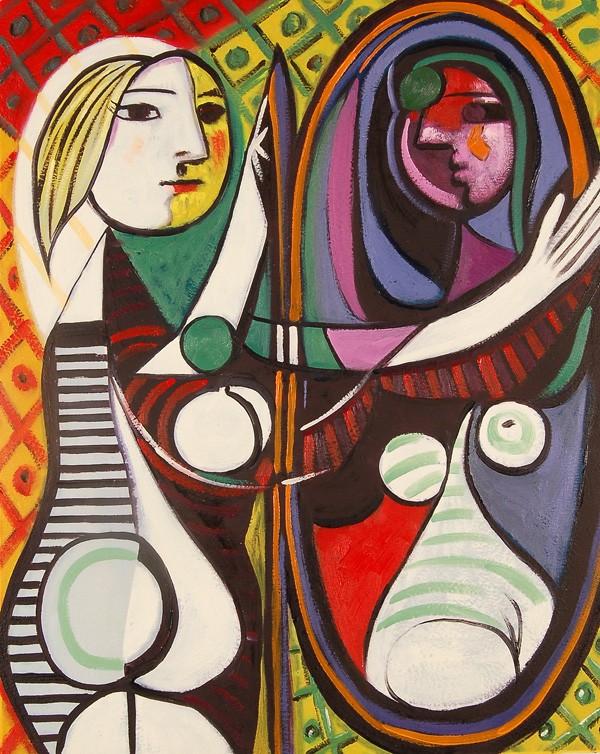 Another one of the readings that’s part of the first session of the “Waking Up to Whiteness” program I posted about yesterday is an article written by Bhikkhu Bodhi, titled: Taking Stock of Oneself.
Another one of the readings that’s part of the first session of the “Waking Up to Whiteness” program I posted about yesterday is an article written by Bhikkhu Bodhi, titled: Taking Stock of Oneself.
Here is an excerpt:
“Normally, in subservience to our need to confirm to ourselves our uniqueness and irreplaceable importance, we proceed to construct mental pictures–indeed, a picture gallery–of what we imagine ourselves to be.
“The self-image that emerges from these pictures becomes simultaneously a mainstay which we cling to in order to maintain our self-esteem and a standpoint from which we orient ourselves toward others and launch our projects in the world. To secure its tenuous status. the mind employed a variety of tactics ‘behind the back’ of our conscious awareness.
“It throws up blinders which keep out disturbing information; it flatters us with fantasied projections; it drives us to manipulate people and situation in ways that will seem to validate our tacit assumptions about our virtues and identity.
“All these projects born of the quest to substantiate our sense of identity only increase our suffering. The more we lock ourselves into the images we form of ourselves, the more we alienate ourselves from others and close off our access to liberating truth. Thence release from suffering requires that we gradually discard our delusive self-images through rigorous examinations of our minds.
“The venerable Sariputta, in the Discourse on No Blemishes (MN5), stresses the role of honest self-assessment as a prerequisite of spiritual growth. He points out that just as a dirty bronze bowl, deposited in a dusty place and utterly neglected, only becomes dirtier and dustier, so if we fail to recognize the blemishes in our minds we will not make any effort to eliminate them, but will continue to harbor greed, hatred and delusion and will die with a corrupted mind….
“The task of self-knowledge is always a difficult one, but it is only by knowing our minds that we will be able to shape them, and it is only by shaping our minds that we can liberate them.”
***
And so we begin.
I Didn’t Know I Was Suffering
I am so grateful for what I learned — for what I have been released from — by working through the “Waking Up to Whiteness” curriculum (organized by members of the East Bay Meditation Center) that I have just formed a new “Waking Up” group and will go through the program again with them.
One of the readings the group will be discussing during our first session is a letter written by Kristin Barker, one of the organizers of the curriculum. Here’s an excerpt:
“There’s good reason we find this work so challenging! In the US, whiteness is made, by whiteness, invisible. In my own life, I was taught not that I was ‘white’ but that I was ‘normal.’ Being ‘just a normal person,’ I was trained to believe that any advantages I have achieved in this life, whatever they are, were owed to my own merit, hard work, or at most to my ‘good fortune.’
“The notion that I have benefitted — and continue to benefit enormously — from not just historical but from the ongoing oppression of others was quite understandably disturbing to my sense of self….
“Suddenly I became aware that people of color knew something about me that I didn’t know, that I was, for instance, wrong in conceiving of myself as ‘normal’ and that I was unknowingly benefiting from — and even perpetuating — the dominance of white people. People of color knew I was white and they knew, so much better than I, what that meant in this world…
“And of course this would challenge me deeply for how painful it is to recognize my role in oppression when I don’t experience myself as ‘doing anything wrong.‘ The only upside to these realizations seemed to be my interest — shaky at times — in truth. And yet there was something more.
“The truth is that I didn’t know I was suffering. The understanding of deep interdependence means that operating in a culture that objectifies, exploits and oppresses, even and especially when hidden from the dominant view, divides the heart against itself. It can be deeply challenging to lean into this. To be willing to look and not waiver is to open to suffering on a massive scale…
“But this is what I want to share and why I wanted to write this letter. The upside is no much greater than I knew, so much greater than just ‘accepting the hard truth’ like a bitter pill. I submit that the upside isn’t even learning to do less harm to people of color, although that is a necessity.
“The upside is wholeness. I have found that, just as promised, if I can turn towards the suffering of racism, against my ego’s self-protecting tendencies, I do experience pain — yet I come to suffer less.
“Some resistance is released. Some wall is dissolved. I may be bewildered and disoriented, but I am strangely more whole. From this place there seems the potential to be (with time and practice) more honest, more courageous and perhaps more truly useful to the causes that move me. My relationships with people of color are more authentic. I can occupy my own location of privilege with more honesty and so much less to defend….
“As uncomfortable, as painful, as disconcerting, as overwhelming as it may be, we have the opportunity to respond individually and collectively, supporting one another in seeing through delusion and making a new way…
“I believe we have an incredible opportunity to know deeply the ways that racial divisions, and all forms of division, maintain our suffering. And in so doing we can not only make ourselves more whole but we can radiate whatever understanding we develop out into our world.…
“May we be wildly successful!”
***
Kristin completely captures my own experience in going through the program. It was hard, but it was liberating!!!
If you’d like more information about the “Waking Up to Whiteness” curriculum or are interested in forming a group of your own, please email me here.
No Room for Self-conscious Thought
I listened last night to another excellent talk from the Concentration Retreat at Spirit Rock, this one by Eugene Cash titled Mindfulness of Breath: Energy, Effort, Discovery. At the very end of the talk, Eugene reads this beautiful passage by pianist Mildred Portney Chase, which really captures the feeling of being profoundly connected to what one give oneself to — which is what happens in meditation when the body, heart and mind become unified.
Mildred writes,
“Just being at the piano, egoless, is to reach the place where the only thing that exists is the sound and the moving toward the sound. The music on the page that was outside of you is now within you and moves through you and you are a channel for the music and playing from the center of your being.
“Everything that you have consciously learned — all of your knowledge — emanates from within you. There is a sense of oneness in which the heart of the musician and the heart of the composer meet, in which there is no room for self-conscious thought.
“You are one with yourself and the act and you feel as if playing has already happened and you are effortlessly releasing it. The music is in your hands, in the air, in the room — the music is everywhere and the whole universe is contained in the experience of playing.”
***
Or in the experience of breathing!
Practice with Pleasure
Last night I listened to one of Sally Armstrong’s talks from the Concentration Retreat being held right now at Spirit Rock. The title of the talk is: Skillful Development of Pleasure in Practice and in Life, and it is one of the clearest, most non-jargon-y talks I’ve ever heard on the importance of the experience of pleasure in practice.
Not pleasure that is based on physical contact. But pleasure based on the mind’s ability to become collected and unified, which is a type of pleasure that is “felt” in the body, but which, frankly, is A WHOLE LOT BETTER! Hard to believe, I know, but it’s true.
At one point early in her practice, Sally experienced this kind of pleasure as “being like one of those long streams of sea-kelp, floating in an ocean of warm honey.”
At the time, she described this to her teacher, and expected to be told: “Just let it go. Don’t hold on to it. Don’t get attached.”
Instead, she was told: “Do more of that!”
Which she did!!!
***
This talk is a pleasure to listen to. You can find it on Dharmaseed here.
Still. Peaceful. Secluded.
OK, let me just say: the Eclipse was AWESOME!!!
I’m really glad I didn’t miss it. (I had been registered to attend a Concentration Retreat at Spirit Rock, Aug 14-24, but canceled when I found out the eclipse would be happening–right here in St. Louis–on Aug 21.)
I’m also glad that even though I had to miss the retreat, I don’t have to miss the talks from the retreat because many of them are already posted on Dharmaseed (here) — including the one I most wanted to hear, from Phillip Moffitt, on the deep states of concentration (known as jhana): From Directed Attention to Absorption.
Phillip talks about the feeling of “coming home” he experiences when the mind is still, peaceful, and secluded.
I know that feeling.
It, too, is “awesome”.
In Our Own Troubled Land
“Like many, I am heartbroken with sadness over the events in Charlottesville Virginia and the rising wave of hate and violence in our culture,” writes Jack Kornfield in an article posted today on the Spirit Rock website.
Jack continues, “While this is part of a long painful history, I want to understand the current tide of white nationalism and racism so the fear and anger it promotes does not take over my own heart...
“Unfortunately as a nation, we have not genuinely come to terms with our past. And it haunts us. It haunts us through our fears and our guilt and our insecurity. It haunts us whenever there are times of national challenges and uncertainty. Our fears are activated and the most primitive forces among us are empowered and unleashed. Our denial of the pain and exploitation in our history feeds the distorted and toxic myths of exceptionalism and white supremacy.
“There is another way.
“It is based on the movement of Restorative Justice….”
“Truth and reconciliation first begins in ourselves…. Quieting your mind, opening your heart with loving awareness, these are the critical steps to begin. For without doing so, you will only add to the chaos and fear. You must bear witness to your own measure of fears and pain, and honorably see and feel your place in our shared, troubled history. With a wise and caring heart you can understand the systems of privilege and oppression and your own place in them.
“And then, like the bodhisattva who hears the cries of the world, you can rise up from your seat of mindfulness and compassion and extend your good hands to touch and mend the sorrows around you. Trust your good hearts. You know how to do this. You have been training for times like this over many years.
“For some your response may be reaching out to connect with those threatened, across lines of religion, race, class, sexual orientation. For some it may mean reaching out to the individuals and groups who are promoting hate and prejudice. For some it may mean educating others. For some it may mean political organizing, or activism, or standing up in peaceful ways in the midst of heated demonstrations. And for some among us it may mean working to support a Truth and Reconciliation process in our communities and across the country.
“This has been explored in over 30 countries, and in small ways has already begun in the US. There is a Truth and Reconciliation process in Greensborough NC. And an article by Fania Davis written last year is a call for such a commission in Ferguson Missouri.
“Since ancient times, Buddhist councils of elders have incorporated elements of a Truth and Reconciliation process in their communities.
“We can do this in many places.
“Now is the time for us to do so in our own troubled land.
“Perhaps this article will spark your imagination. Or inspire you to start a Truth and Reconciliation group in your community. Or simply remind you that we humans have lived through troubled times before, and that there are ways to steady our hearts and move courageously and compassionately through them.
“In spite of the surfacing of so much conflict and pain, I am still hopeful.
“There is a magnificence to the human spirit as well as a dangerous and destructive side. Difficult times can ennoble us, and call forth new levels of dedication and care for our lives, our families, our communities, and this precious globe.
“May it be so.
“And for those creating suffering at every level, I send metta which includes you as well…
“May you be free from hate.
May you be free from fear.
May you be free from ignorance.
May al beings be safe and protected.
“With blessings,
Jack Kornfield
Spirit Rock Center”
***
(click here to read the complete article)

